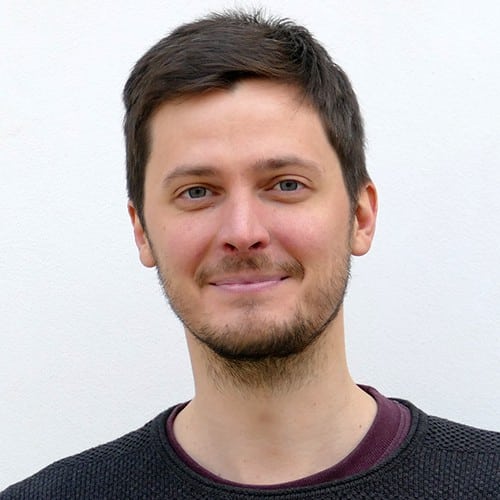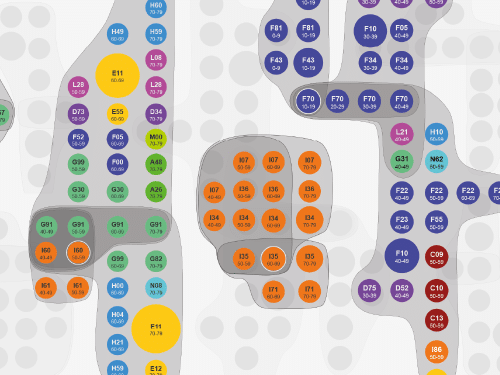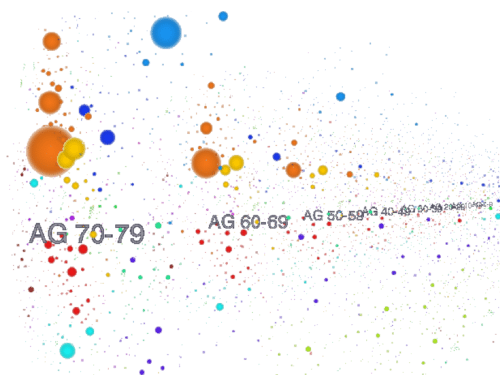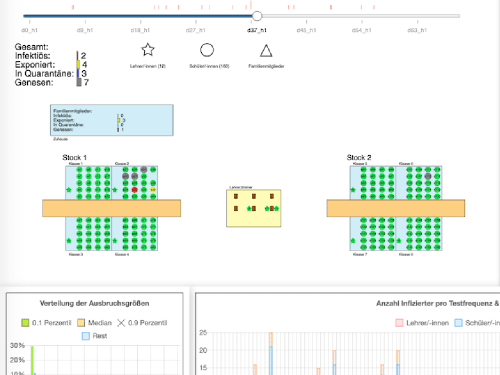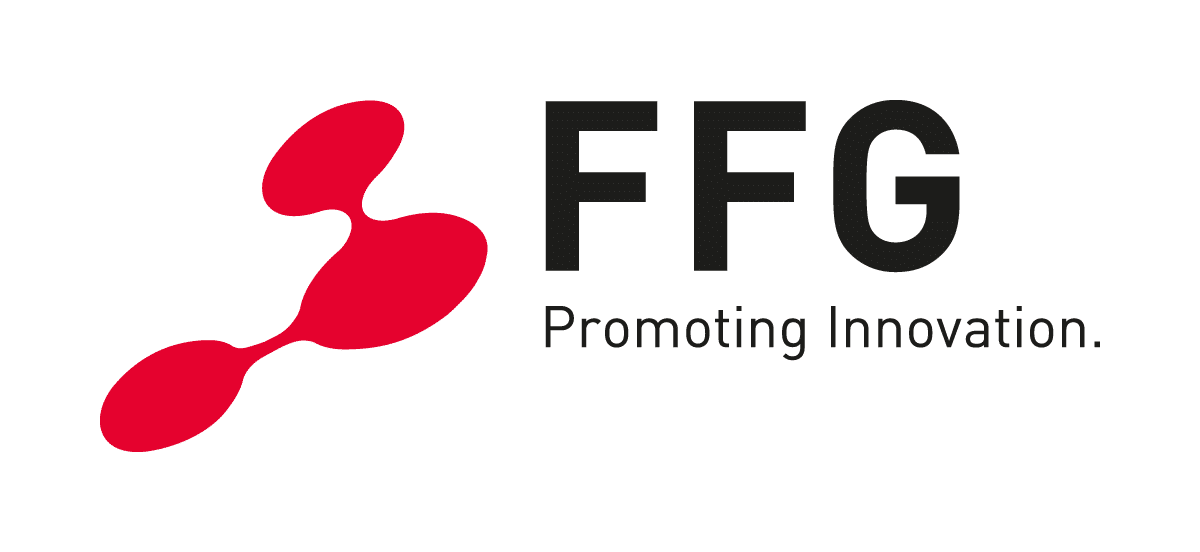Research Topics
Healthcare & Medicine
In a world with an aging, growing, and increasingly interconnected population, health challenges span from pandemics to the complexity of multimorbidity. We aim for a data-driven understanding of population health and healthcare efficacy, enabling us to predict future disease trajectories for better and personalized healthcare strategies.
The world population is aging at an increasing pace, the number of people aged 60 and older is expected to double by 2050. At the same time, temperatures are rising due to climate change, putting a significant strain on our organisms. And while many people are suffering from hunger, obesity is increasing worldwide. These are just a few challenges that healthcare and social systems must effectively respond to. But how?
Healthcare systems regularly generate large amounts of data, including electronic medical records and administrative data. We use these population-wide datasets on a large scale and develop methods aimed at gaining a better understanding of disease development over time and in different population groups (e.g., by gender or age), treatment methods, and future disease likelihoods.
Traditional medical research often operates within a paradigm of “single gene, single disease, single drug.” However, our approach recognizes that most people suffer from multiple chronic and multifactorial diseases, known as multimorbidity. As a result, these individuals receive multiple treatments and experience complex health journeys involving various healthcare providers. We use network medicine and machine learning approaches to identify interdependencies as well as relevant, predictive, and personalized patterns in the data. These patterns can then be applied to epidemiological and clinical studies.
With our research, we aim to promote healthy aging by providing data-driven strategies for early disease identification and personalized prevention. To achieve this, we prioritize a patient-centric approach over a disease-centric one. This approach aims to understand personalized healthcare trajectories that describe how patients accumulate diseases as they age in a predictive way. It also examines how treatments and other types of healthcare utilization impact these trajectories.
Goals
- Understanding personalized healthcare trajectories over time
- Identifying patterns with the assistance of network medicine and machine learning
- Predicting future health risks to implement personalized and early prevention
- Promoting healthy aging by offering data-driven strategies at an early stage







